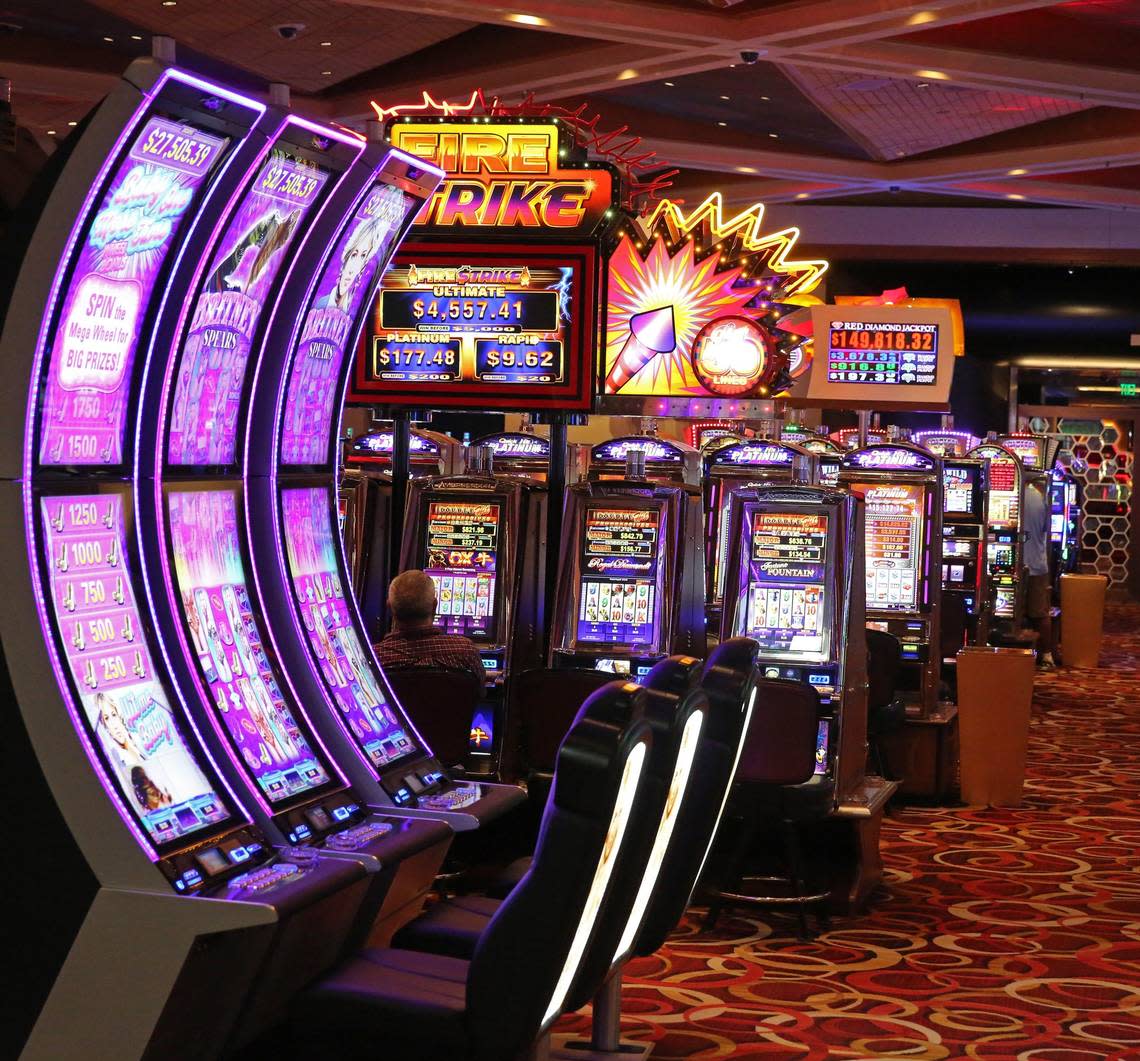Miami Beach mayor warns: Federal rule could open door to new tribal casinos

Miami Beach’s mayor is asking the federal government to reject a proposed rule that he fears could make it easier for Indian tribes to buy land in his city and turn it into a resort casino, leapfrogging over the local opposition that has traditionally been the bulwark against gaming expansion in his town.
In a letter to the U.S. Department of the Interior on Tuesday, Miami Beach Mayor Dan Gelber tells the Bureau of Indian Affairs that its plan “can and will facilitate and hasten the introduction of off-reservation Indian gaming casinos.”
Under the proposal, tribes can buy off-reservation land, put it into a trust and benefit from the same exemptions from state and federal law that reservations enjoy, such as paying no property taxes, being exempt from environmental and zoning regulations, and limiting oversight of state and local law enforcement, said Thomas Gede, a lawyer specializing in American Indian law who has been hired to advise Miami Beach.
The Miami Beach City Commission has consistently opposed expansion of gambling, adopting six resolutions since 2008 that opposed proposals pending before the Florida Legislature and county governments.
Although federal and state governments must first approve a gaming compact before a tribe can operate a casino on its land, Gelber warned that the proposed federal rule removes a provision that requires the secretary of the Interior “to listen to and give ‘greater weight’ to the state and local governments on these issues when the acquisition is for ‘off-reservation’ lands.“
He said the proposed rules “effectively eliminate the ability of local governments to object and be heard” and “represents a direct threat to the City’s home rule powers and its policy against casino gambling.”
“This proposed rule represents a seismic shift in policy that will allow casinos and gambling operators to force casinos into cities, notwithstanding well-founded and long-standing objections, and regardless of how incompatible they may be with the local economy and quality of life,’’ Gelber wrote.
The Bureau of Indian Affairs describes the new rule as an attempt at streamlining a host of previous rulings and opinions that have developed over decades relating to tribal land acquisition. It gave the public until March 1 to submit comments and will then decide whether or not to approve the proposal as a final rule.
“...This proposed rule seeks to make the land into trust process more efficient, simpler, and less expensive to support restoration of tribal homelands,” the Bureau of Indian Affairs wrote in its rule notice in the Federal Register.
Gede said the new rule takes away a current regulation that requires that “state and local governments’ views will be given greater scrutiny” when federal officials are considering whether to approve or reject a casino proposal.
“This isn’t a slam dunk,’’ he said. “but it is a question of opening the door and easing the ability of a tribe to get an off-reservation parcel.”
Differing interpretations
Marc Dunbar, a lawyer and gaming law expert who has represented both the Seminole Tribe and private casino operators, said that Gelber and his legal advisers are wrong to assume that the proposed rule will interfere with what the City of Miami Beach can do to keep casinos away.
“There is no tribe that can assert any off-reservation play in the City of Miami Beach that [the city] could not block by just blocking it in City Hall,’’ he said. “Locals still have a very important role in Interior approval, and it always has. Interior does not jam gaming down locals’ throats particularly if it’s an off-reservation site, or a new reservation.”
Dunbar added the rule will not change the federal rules related to Indian gaming that require federal, state and local approval before a casino is allowed to operate on tribal land.
“There are a lot of people are looking for boogeyman in this but there really are legitimate clarification issues for people outside of Florida and nothing in this changes anything about Florida,’’ he said.
But, he said, the rule will affirm what federal officials have said in the court case in which the federal government has sided with the Seminole Tribe of Florida, which owns the Hard Rock Casino in Hollywood, in a lawsuit challenging the compact with the state over whether it can expand its gambling operations by running a sports betting monopoly in Florida.
Legal fight over latest gaming compact
In November 2021, Judge Dabney L. Friedrich of the U.S. District Court in the District of Columbia invalidated the gaming compact and sided with West Flagler Associates and other plaintiffs who were challenging the deal as violating federal Indian gaming law because it allowed bets to occur outside of tribal land.
Friedrich concluded that the Department of Interior erred in allowing the sports betting deal to go forward because any state-sanctioned gambling must occur on tribal land.
Federal officials have said if a state and a tribe “decide that gaming that is done via the internet occurs on the tribe’s servers....when someone places a wager remotely, that is OK,’’ Dunbar explained.
The proposed rule comes as the footprint of tribal gaming in South Florida is growing.
Last month, West Flagler Associates completed the multimillion-dollar sale of its Magic City Casino to PCI Gaming Authority, owned by the Poarch Band of Creek Indians, a tribe with a reservation in Alabama.
If the federal government formally approves the proposed rule, it will not take effect immediately. It must first be published in the Federal Register, Gede said, and the Office of Management and Budget and Congress have the power to either allow it to go through or to invalidate it. It could also be halted in a legal challenge.
Mary Ellen Klas can be reached at meklas@miamiherald.com and @MaryEllenKlas
